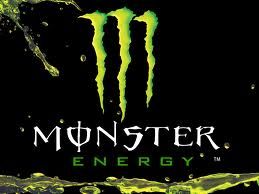
Sleep
Energy Drinks: What Do They Really Do?
Why are energy drinks suddenly being investigated?
Posted September 13, 2012

What’s Happening to Energy Drinks?
They’ve increased to become a larger part of American beverage business — presently $8.9 billion worth per year. Their corporate parents have also been subpoenaed by the New York Attorney General for not fully disclosing their ingredients or their health effects.
What’s Prompted the Investigation?
Deaths, widely reported in the media. Senator Dick Durbin of Illinois wanted to know what role Monster Energy played in the sudden death of a teenager.
What’s Inside Energy Drinks?
Generally caffeine — plus usually sugar and a wide mix of amino acids, vitamins, “herbs” and other substances. Many of these additional ingredients include xanthine and other stimulants that don’t get added up to the “caffeine” line listed in the ingredients.
What Will the Investigators Look At?
The perpetual dividing line for regulations: whether the drinks are drugs or foods, and why emergency room visits for energy drinks have skyrocketed in the last few years.
In other words they’ll look at the health care effects of energy drinks before querying their full health effects. Adults certainly imbibe 5-Hour Energy, Monster, Red Bull and the like, but the major growth has been in kids.
How Do Teenagers Use Energy Drinks?
In endless ways. Here are a few: 1. They take them to hide the sedating effects of alcohol. That’s why the FDA banned Four Loko — a combination of alchohol and caffeine. Now kids quickly make that combination themselves — vodka and energy drink is a popular, sometimes deadly duo. 2. Combine them willy-nilly with many other drugs — uppers, downers, bath salts. If something is “too sedating” you might add Monster to the mix. Here is a generation that routinely mixes pharmaceuticals in fashions pharmacologists, doctors, and chemists never imagined. 3. Use them to stay up — night and day. At night by playing video games, hanging out, doing school work. Many wake in the morning so sleep deprived and “tired” they must take them again to get to class — where they may need a further dose to stay awake.
What Are the Real Health Effects of These Drugs?
Manyfold, and mainly unstudied. Health is an information issue. The body takes in all the stimuli of the day and uses that information to reprogram its rapid rebuild. Normal regeneration is particularly critical during the teenage years when energy drugs are most popular, for teenagers quickly rebuild their brains — in new ways. Perhaps a third of synapses die in puberty, and brain reorganization is speedy. That’s probably one reason why teenagers require more hours of rest and sleep than adults.
What Information Do Energy Drinks Provide?
Information psychological, social, and physiologic. Several of the messages provided are misleading:
1. You don’t need that much sleep. Just take a quick “hit of energy” and you’re “good to go.
2. Athletic and mental performance flows from a can.
3. If you’re getting tired, just take more energy drinks — they’re safe. They’re packaged to look food, look like food, taste like food. Aren’t they just another kind of food?
What’s the Real Downside of Energy Drinks?
1. These drugs disrupt sleep. Take them at night and you won’t sleep well — which means you’ll need more of them during the day. Caffeinism — addiction to caffeine — is underdiagnosed and frequently nasty.
2. If you don’t get enough sleep and other forms of rest to properly regenerate a young, growing body, you don’t learn as well; can’t concentrate; have poorer long term memory; set yourself up for more colds; gain weight; won’t look as healthy or attractive as you should.
3. Drinks can lead to more drinks just as pills can lead to using more pills. Too buzzed on energy drinks? You can “come down” with alcohol or some of the nearly 400 “relaxation drinks.” Mix and match as you think you need.
The implied message from marketing these drugs is that there is a “safe," easily accessible drug for many of your needs. Parents worried about future drug addiction of their children, please take notice.
4. The individual and combined effects of the many ingredients of energy drinks have been minimally studied. We don’t know what they do.
Bottom Line:
Energy drinks, as I’ve argued before, should be labeled “anti-relaxation” drinks and recognized for what they are — drugs masquerading as food. If they have a use it’s more effectively served by downing a cup of coffee or tea, or even the direct ingestion of a caffeine pill.
And with coffee and tea you get a legally recognized food-drug which can help combat diabetes, Parkinsonism or perhaps even dementia — rather than an expensive chemical concoction in a cute aluminum can. We know what tea and coffee do to people.
We don’t know much about the long term effects of energy drinks — except for a few short, unsavory ones. And as many of us constantly relearn, what you don't know can hurt you.



